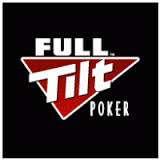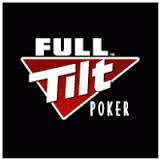Full Tilt Poker Drops HU Games Among Sweeping Changes Targeting Bumhunting
With several of its officials citing the need to fix an online-poker economy that is “broken,” Full Tilt Poker today announced a series of sweeping changes today intended to re-balance the game’s playing field. Among the most impactful are the immediate removal of all heads-up (HU) tables from the site, and the removal of table-selection tools that allow players to sit at particular tables within a given category of game type and stakes.
 The immense changes are intended to significantly deter a predatory player behavior known as “bumhunting,” in which experienced players go to extreme steps — often with the use of automated, third-party seating scripts — to avoid playing other experienced, top-level players. The bumhunters seek out newer and lesser-skilled players as exclusively as possible, to the point that such newer players never got the opportunity to play against other newbies.
The immense changes are intended to significantly deter a predatory player behavior known as “bumhunting,” in which experienced players go to extreme steps — often with the use of automated, third-party seating scripts — to avoid playing other experienced, top-level players. The bumhunters seek out newer and lesser-skilled players as exclusively as possible, to the point that such newer players never got the opportunity to play against other newbies.
According to a statement from Amaya Gaming’s Michael Josem, “These changes will make poker faster and more fun, and improve the player experience on mobile, tablet and desktop.” Added Josem, “These ring game changes will introduce a system that makes games more accessible and gets players into the action faster, taking the best elements of online and live seating to make it easy for players to log in, choose their game, and start playing.”
The following are the most important of the changes, as announced today in a blog by Full Tilt’s Managing Director, Dominic Mansour, and a series of poker discussion-forum posts by Full Tilt’s Poker Room Manager: Shyam Markus:
- The removal of all HU, or heads-up, poker tables, citing their overall negative effect on the site’s long-term economy;
- The removal of specific single-table, table-selection capabilities. Players can still select game type, betting limits, and number of tables, and them will automatically seated at tables matching those specifications;
- A newly-reduced cap on the number of tables any single player can sit at and play. This is to be set at 16 overall, and only six (6) of a single game/stakes combination. The idea is to cut back on the number of players taking the maximum amount of time on every decision, due to that player having a large number of tables open, and thus slowing down those tables and the rates of play for all players on the site. In addition, Full Tilt will be instituting a 30-minute timer attached to each table, so that players cannot use automated assists to continually rejoin and leave targeted tables with the design of over-choosing what tables to play.
- The elimination of “nosebleed stakes” in cash-game play, which by Full Tilt’s definition includes all games with blinds over $10/$20;
- The elimination of lesser poker variations such as seven-card-stud, five-card-draw, and various mixed games. Waning demand for these games likely means that their removal from the client improves overall client response times, even if Full Tilt then becomes a site offering only Hold’em and Omaha, as is, frankly, found on too many competitors’ sites already. Speaking about the removal of these other games, Markus said, “Simply put, we didn’t have enough players still interested in these games [] to continue to offer them as ring games. We’ll still spread them as occasional tournaments, and I hope to be able to bring more fun non-hold’em games back in the future, but for now it’s more important that we have a clean and simple offering of the games that actually run.”
Continuing and significant changes in Full Tilt’s Rewards Program are also expected to be rolled out in the near future. These changes have not been fully specified, but based on the theme of the above changes, a flattening of Rewards scales, lessening the emphasis on high-volume play, would seem among the likeliest modifications, whenever it’s announced.
The first two of the changes above outstrip the other three in terms of overall impact on the site, its revenue, and ongoing operations, though any of the five would be deemed a major development on its own. (In a follow-up op/ed, we’ll look at some of the issues plaguing the heads-up games in particular, issues which are predominant on Full Tilt and its larger, sister site PokerStars, but which continue to bedevil the overall online-poker world.)
That Full Tilt parent Amaya Gaming was looking at ways to neutralize the effectiveness of a minority of heavily-experienced, script- and software-dependent players can’t be stated strongly enough. In his selling of the new concept, Mansour likened the changes to be more like the experience of a live poker room, where arriving players are generally steered to an available seat at a game and stakes of their choice.
Mansour never used the word “bumhunter” specifically, though the intent of his words was the same. In a blog post at Full Tilt, he wrote, “… Heads Up games were being adversely impacted by the minority of experienced players who targeted ‘weaker’ opponents rather than take on all challengers.”
Markus was more specific, writing this on a discussion forum:
“Table selection (or, really, bumhunting) is worse at HU than any other form of poker. This was at best half-solved with the [other] ring-game changes. The new behaviour would have been: join game, get matched up with a player you don’t want to play, leave, repeatx7, go do something else for 30 minutes. Every once in a while a good player would hit the jackpot and find a weak enough player they’re willing to play… .”
Markus went on to point out that the other changes would have made it more work for the bumhunters at HU, but not impossible. After further consideration, it was decided by the company to eliminate the format altogether, despite the potential lost revenue.
However, trading a short-term loss for longer-term sustainability is also part of the plan. Added Markus, “Our data shows that the more a new player in their first month plays heads-up, the less likely they are to return in their second month. Dramatically so. This would not have been fixed with the ring game changes [alone].”
The moves were met with widespread approval throughout both the player and industry communities, but with a vocal and outsized howl from the software-dependent users targeted by the changes. Referring to the changes at Full Tilt, the operators of Unibet, a site which employs a different version of a “recreational poker model,” wrote on Twitter, “What’s that old adage – ‘imitation is the sincerest form of flattery.’ Aww thanks guys!”
Whether the moves will be echoed at a later date on Full Tilt’s larger sister, PokerStars, have not been determined. Despite being among the world’s half-dozen largest online poker sites, Full Tilt is still dwarfed by Stars’ immense player volume, putting parent company Amaya in the unique position of being able to use Full Tilt as a testing ground for major market renovations such as those announced today.



















COMMENTS